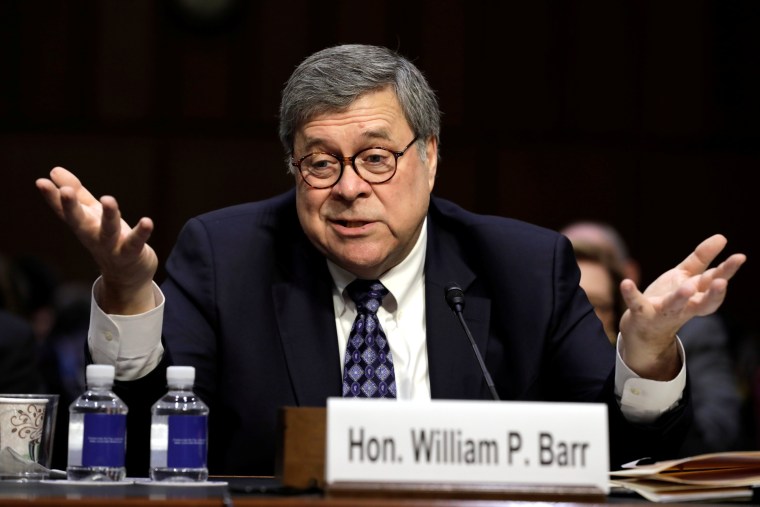Senate Judiciary Committee Chairman Lindsey Graham (R-S.C.) did not do himself any favors with his role in yesterday's hearing with Attorney General Bill Barr. As a Washington Post analysis made clear, the Republican senator "played pretty fast and loose with the facts."
Indeed, the list of missteps wasn't brief. Among other things, Graham repeated obvious factual errors on everything from "collusion" evidence to Robert Mueller's intentions on obstruction allegations.
The Republican does, however, have an excuse, though it's not an especially good one: Graham admitted he hasn't read the Mueller report. It's easy for a senator to say things that aren't true about an investigation when he hasn't bothered to familiarize himself with the details of the investigation's findings.
By this reasoning, Graham wasn't trying to deceive people with his bogus claims; he just didn't know, in a rather literal sense, what he was talking about.
But this in turn got me thinking about what Graham and William Barr may have in common: maybe both have struggled because neither one has done enough reading.
Sen. Kamala Harris (D-Calif.) asked the attorney general yesterday whether he personally reviewed the underlying evidence, alleging presidential obstruction of justice.
BARR: No, we accepted the statements in the report as the factual record. We did not go underneath it to see whether or not they were accurately accepted as accurate. And made our--made our--HARRIS: Accepted the report as the evidence?BARR: Yes.HARRIS: You did not question or look at the underlying evidence that supports the conclusions in the report?BARR: No.HARRIS: Did Mr. Rosenstein review the evidence that underlies and supports the conclusions in the report to your knowledge?BARR: Not to my knowledge. We accepted the statements in the report--and characterization of the evidence as true.HARRIS: Did anyone in your executive office review the evidence supporting the report?BARR: No.HARRIS: No. Yet you represented to the American public that the evidence was not 'sufficient to support an obstruction of justice offense'?
It was a rough exchange for the attorney general, but it wasn't the only one.
A separate Washington Post report added, in reference to yesterday's hearing, "Barr admitted he hadn't reviewed the evidence underlying Mueller's findings on obstruction, he hadn't looked at the evidence undergirding the origination of the probe into possible coordination and, at one point, even made a comment raising questions about his familiarity with one of the key issues at the heart of the probe."
This whole process might be more productive if key players were willing to do their homework.
